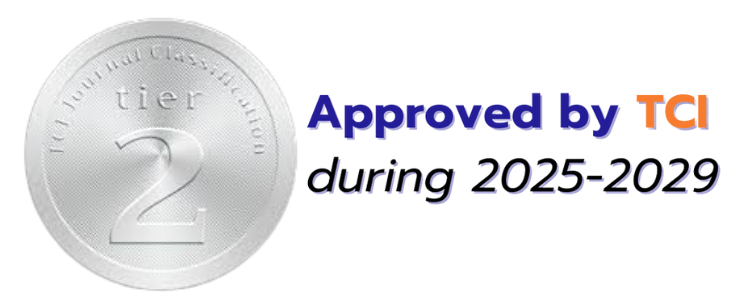Priority Needs of Academic Management Development of Primary Schools in Phanthai Norasing Consortium, Samut Sakhon Based on Concept of Digital Fluency
Keywords:
Academic Management, Digital Fluency, Priority NeedsAbstract
The objectives of this research article were 1) to study the current and desired situation of academic management development of Primary Schools in Phanthai Norasing Consortium, Samut Sakhon Based on Concept of Digital Fluency 2) to study the priority needs of academic management development of Primary Schools in Phanthai Norasing Consortium, Samut Sakhon Based on Concept of Digital Fluency. A descriptive research method is used in this research.
The instrument was a rating-scale questionnaire. The data were analyzed by mean, standard deviation, and Modified Priority Needs Index (PNIModified). The survey was completed by 122 people, who were all school administrators and primary school teachers at in Phanthai Norasing Consortium, Samut Sakhon.
The research results found that: 1) The current and desired situation of academic management development of Primary Schools in Phanthai Norasing Consortium, Samut Sakhon Based on Concept of Digital Fluency classified by academic management aspects were at a moderate and highest level, respectively. In terms of the current and desired situation of academic management development of Primary Schools in Phanthai Norasing Consortium, Samut Sakhon Based on Concept of Digital Fluency classified by Digital Fluency framework were at a moderate and highest level. 2) The highest priority needs for developing academic management of primary schools in the Phanthai Norasing Consortium, Samut Sakhon Based on Concept of Digital Fluency, are measurement and evaluation and the academic administration framework with the lowest needs is teaching and learning management.
School could use the research results to develop academic management guidelines, encompassing curriculum development, teaching and learning management, measurement and evaluation, and the development and utilization of educational technology media to enhance students' digital fluency.
Downloads
References
Buathong, S. (2017). Measurement and Assessment of Learning Skills in the21st Century Veridian E-Journal,Silpakorn University, 10(2)(1856-1867).
Demir, K., Aydin, B., Ersoy, N., Kelek, A., Tatar, I., Kuzu, A., & Odabasi, H. (2015). Visiting digital fluency for pre-service teachers in Turkey. World Journal on Educational Technology, 7(1), 01-08.
Digital Government Development Agency (DGA). (2022). Project to create a digital government development plan for Thailand 2023-2027. Brainstorming meeting study group.
Jiamthong, N., and Wibuncharoensuk, P. (2023). Learning management using design thinking for primary school students. Journal of Roi Kaensarn Academi, 8(4), 556-570.
Khamted, R. (2023). The Application of Information Technology for Academic Administration on The New Normal under Angthong Educational Service Area Office. Journal of Bovorn Multi-Education and Human Social Sciences, 4(2), 128-140.
Nunarat, N. (2017). How to learn in the digital age: perspectives that must be prepared for Thai children. Santapon College Academic Journal, 3(2), 318-326.
Office of the Education Council. (2017). National Education Plan 2017 - 2036. Bangkok:Phrikwan Graphic Company.
Office of the National Economic and Social Development Council of the Prime minister. (2022). National Economic and Social Development Plan No. 13 (2023—2027). Office of the Prime Minister.
Prasertsak, S., Juntaros, A., Boonsong, K., & Petsom, N. (2023). Authentic assessment in the digital age. Journal of MCU Phetchaburi Review, 6(2), 83-99.
Promarin, N. (2022). Results of using digital storytelling learning activities (Digital Storytelling) to promote English reading comprehension abilities of Mathayom 6 students [Master of Education Silpakorn University].
Resnick, M. (2002). Rethinking learning in the digital age. https://livernspleen.com/wp-content/uploads/2012/12/readiness-for-the-networked-world.pdf#page=48.
Rinrit, P., and Charbudboontarik S. (2020). Learning and Teaching Management of Social Studies in 21st Century. Journal of Roi Kaensarn Academi, 5(2), 204-212.
Rojsaranrom, S. (2020). The Current and Desired Situation of the Academic Management for Enhancing Students’ Digital Literacy in Secondary Schools. UMT Poly Journal, 17(2), 319-334.
Samut Sakhon Primary Educational Service Area Office. (2022). Performance report 2022. Policy and Planning Group
Tripathi, S. (2019). Characteristics and consciousness of children in the digital age and the new paradigm shift. Journal of Early Childhood Education Management, 1(1), 90-100.
Tumnanchit, B. (2022). The Instruction with Online Lessons Combined with Cooperative learning by Using learning Through Digital Storytelling. ITED journal, 34(123), 3-12.
Wongdechanun, R. (2020). Developing and Writing Lesson Plans for Social Studies. Mahachulagajasara Journal 11(1), 25-35.
Wongyai, N. (2017). Guidelines for developing digital literacy skills of digital natives. Veridian E-Journal, 10(2), 1630-1642.
Downloads
Published
Issue
Section
License
Copyright (c) 2024 Journal of Education and Human Development Sciences

This work is licensed under a Creative Commons Attribution-NonCommercial-NoDerivatives 4.0 International License.







